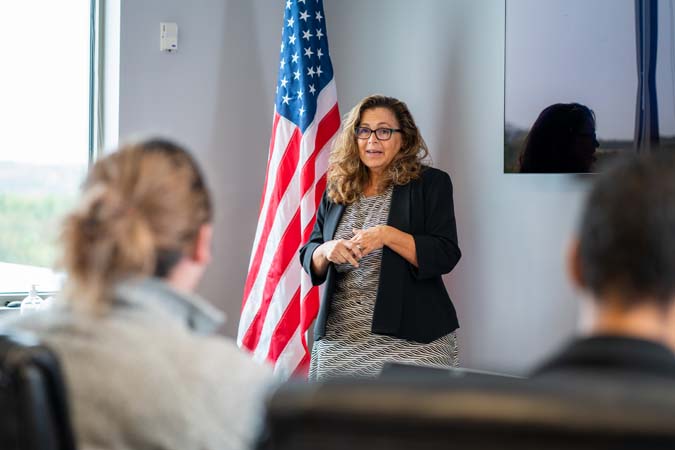Training
Partnering with our clients to achieve specific business or program outcomes via educational activities.
Training is an educational activity designed to improve job performance and to attain new knowledge and skills. Training is not one more set of slides heaped upon a mountain of digital despair. We can help you define success before you start, so you’ll achieve the business or program outcomes you desire while providing training that sticks with your participants.
Digital Cloak provides tailored approaches based on each client’s unique circumstances. Although our methods are standardized and repeatable, the implementation on any given project is unique based on the problem to be solved and the desired outcomes. We’ll tailor the approach, and we’ll be honest if we don’t think training is the answer.
Custom Tailored Training Programs

Training Development
Our experience with training development encompasses a broad array of techniques and products. We can adopt a formal Instruction Systems Design (ISD) approach, with rigor every step of the way, or we can assist with rapid-fire development of a solution needed yesterday. We have experience with developing a variety of artifacts for clients, including program orientations, classroom lectures, role playing scenarios, simulations, games, and computer-based training.
Our teams at Digital Cloak closely follow industry models and standards for training development. Our preferred development model is the 5-step ADDIE model, although we are familiar with other models and techniques. Using industry models ensures that our approach is repeatable no matter the client or market.

Training Facilitation
Digital Cloak specializes in providing Mobile Training Teams (MTTs) for our clients. We have two MTTs that travel globally to train our clients’ staff. These teams provide program certification training as well as specialized technical training.
Our MTTs vary depending upon the client and situation, but we frequently perform a combination of the following tasks for any given event:
- Manage training logistics
- Establish a classroom intranet and provide the laptops necessary to support hands-on workshops
- Conduct train-the-trainer sessions
- Adhere to instructor manuals, and identify needed updates during use
- Facilitate classroom discussions on complex topics
- Administer pre- and post-tests
- Oversee in-class group projects
- Distribute certificates of completion
- Distribute and analyze course evaluations
